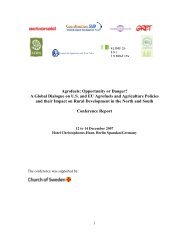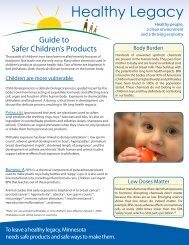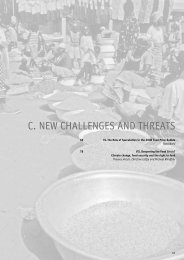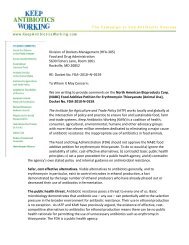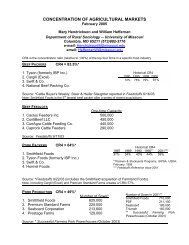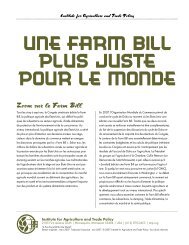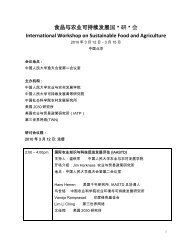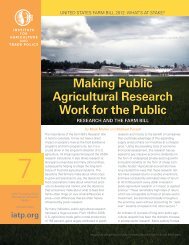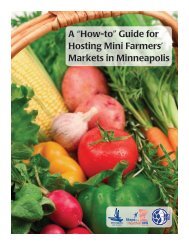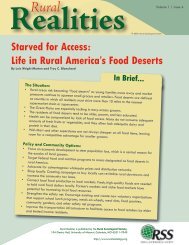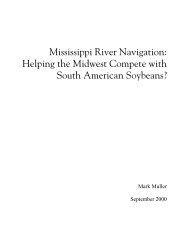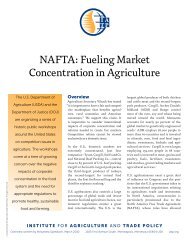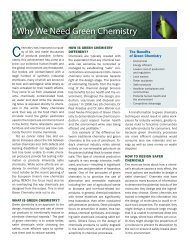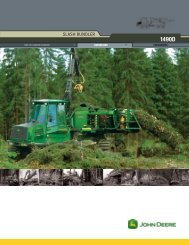IATP Hog Report - Institute for Agriculture and Trade Policy
IATP Hog Report - Institute for Agriculture and Trade Policy
IATP Hog Report - Institute for Agriculture and Trade Policy
Create successful ePaper yourself
Turn your PDF publications into a flip-book with our unique Google optimized e-Paper software.
Section 6<br />
widespread abuses of animal factories in Animal Machines: The New<br />
Factory Farming Industry, little has changed about the basic model of<br />
industrial animal production, especially in the United States. 83,84<br />
Shortly be<strong>for</strong>e her death from cancer, Rachel Carson wrote the <strong>for</strong>eword<br />
to Harrison's Animal Machines. In words that could easily have been<br />
written today, Carson noted: 85<br />
The modern world worships the gods of speed <strong>and</strong><br />
quantity, <strong>and</strong> of the quick <strong>and</strong> easy profit, <strong>and</strong> out of this<br />
idolatry monstrous evils have arisen.<br />
As a biologist whose special interests lie in the field of<br />
ecology, or the relation between living things <strong>and</strong> their<br />
environment, I find it inconceivable that healthy animals<br />
can be produced under the artificial <strong>and</strong> damaging<br />
conditions that prevail in these modern factorylike<br />
installations, where animals are grown <strong>and</strong> turned out like<br />
so many inanimate objects....<br />
Although the quantity of production is up, quality is<br />
down.... The menace to human consumers from the drugs,<br />
hormones, <strong>and</strong> pesticides used to keep this whole fantastic<br />
operation somehow going is a matter never properly<br />
explored.<br />
Sydney Jennings, a past president of the British Veterinary Medical<br />
Association, wrote in the preface to Animal Machines: 86<br />
[Harrison's] whole book is a timely warning to man to halt<br />
in the surge <strong>for</strong>wards into new methods of farming so that<br />
he may quietly <strong>and</strong> philosophically consider where it is all<br />
leading.<br />
Four decades later, U.S. agriculture still has failed to change direction <strong>and</strong><br />
adopt a more humane, sustainable model of animal production. Why did<br />
the warnings go unheeded; or, if heeded, why were they not acted upon by<br />
the industry <strong>and</strong> government despite public concerns?<br />
During the 1970s, 1980s, <strong>and</strong> early 1990s, magazines <strong>and</strong> newsletters<br />
directed to farmers were filled with articles describing the dangers to<br />
agriculture of extremists who questioned industry practices, such as<br />
intensive confinement <strong>and</strong> subtherapeutic antibiotic use. In particular,<br />
powerful interests in the U.S. livestock industry <strong>and</strong> academia squelched<br />
debate by misrepresenting the implications of growing public concern<br />
http://www.iatp.org/hogreport/sec6.html (14 of 30)2/27/2006 3:50:16 AM



